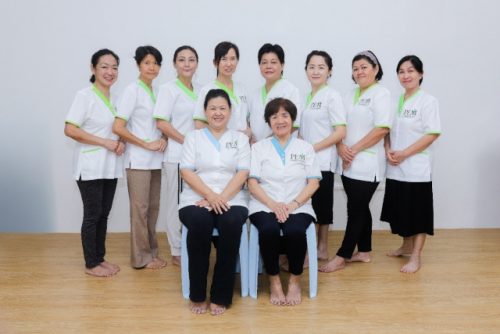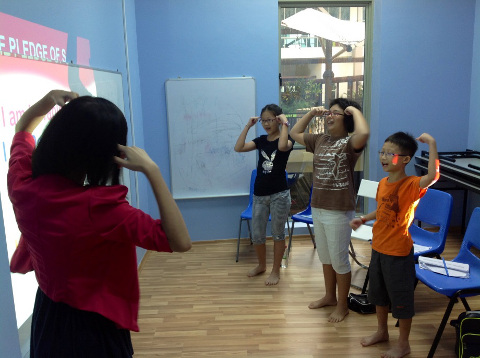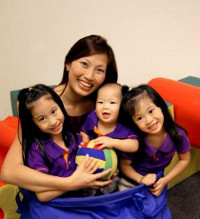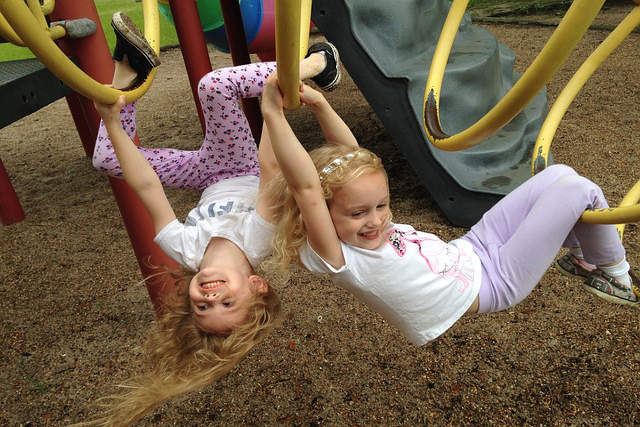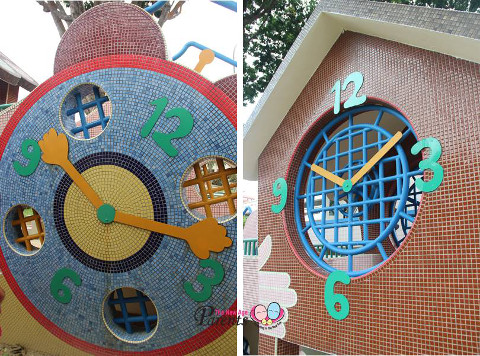Listening out for the child’s first word is what every single parent will do, and they can typically expect this important milestone by their child’s first birthday. Hearing their child utter the first word can be an exciting and emotional moment. On the contrary, if the much anticipated first word is late, it can create anxiety and unease among parents.

A common phrase parents come across when looking for an explanation for a child’s delayed development is “Different children develop at their own pace”. Hence, parents may adopt a ‘wait and see’ approach. Others may suggest that they seek help immediately “just in case”. In this age where information is readily available at our fingertips, simply type in a search for ‘late talker’, plenty of information from professionals and parents would be generated. Furthermore, parents will have to manage information from their family members and friends who share stories and experiences. Given the influx of mixed messages and advice from various sources, it can be very difficult for parents to come to a decision on the next course of action. So, how can parents determine if “late talkers” truly need the extra help?
Who Is A “Late Talker”?
A “Late Talker” refers to a toddler (aged between 18-30 months) who has a limited spoken vocabulary for his or her age. The late talking child’s difficulty lies specifically in his or her expressive language. In other words, the child has difficulty with spoken language. However, the child demonstrates good receptive language – that is, he or she is able to understand what you are saying and follow simple commands. The late talker also has typically developing play skills, motor skills, and social skills.
Do note that in this case, we are not referring to children with developmental or physical delays such as Autism, Cerebral Palsy, Down Syndrome, or children with a specific difficulty with both producing and understanding language, known as “language delay or disorder.”

What Are Typically Developing Toddlers Saying?
Indeed, children develop at their own pace to a certain extent. However, it is important that their progress is steady and that they reach certain language milestones within accepted time frames. In the first few years of life, children’s spoken language typically progresses according to the following stages:
- By 9 months, children can use lots of different sounds when babbling (e.g. ba, ga, da)
- By 12 months, children begin to imitate sounds and say their first recognisable words (e.g. mama, bye)
- By 18 months, they can use adult-like intonation and at least 20 words, including different types of words, such as nouns (car, baby), verbs ( eat, go), adjectives (big, hot)
- By 24 months, children have about 50 – 100 words and combine 2 words together. These word combinations are spontaneously produced by them (e.g. “car go”, “bubbles there”, “big ball”) They can refer to themselves by name and say “no”.
- By 36 months, children are able to use 2 to 3-word sentences. They are able to use some prepositions (e.g. in, on), personal pronouns (e.g. you, me) as well as ask simple questions (e.g. “Where is mummy?)
What Are Some Risk Factors?
As late talkers are progressing well in other areas of development, parents may assume that they will catch up on their own. Research has shown that 70-80% of late talking toddlers will outgrow a language delay if it is an expressive delay only – meaning the delay involves only spoken language. The toddlers exhibit no delays in their understanding and/or social use of language. Whilst this figure may appear to be promising, it is prudent to consider the flip side of the coin: 20-30% of late talkers do not outgrow the delay and will continue to lag behind their peers.

It can be difficult to predict which children will not outgrow their language delay. Olswang, Rodriguez and Timler identified a list of risk factors, which suggest that children who exhibit certain characteristics are more likely to have continuing language difficulties. These characteristics include a child who;
- Was quiet as an infant and used little babbling;
- Uses limited number of consonant sounds (eg. p, b, m, t, d, n etc.)
- Does not imitate words
- Uses mostly nouns (names of people, places, things), and few verbs (action words)
- Does not link pretend ideas and actions together while playing
- Has difficulty playing with peers (social skills)
- Has a history of ear infections
- Uses few gestures to communicate
- Has a family history of communication delay, learning or academic difficulties
- Exhibits a mild comprehension (or understanding) delay for his or her age
Ellis and Tha in their research indicated that children who demonstrate the final three risk factors listed above (use few gestures, positive family history, comprehension delay) are at higher risk of ongoing language difficulties.
Why Is Intervention Important?
Late-talking children may have lingering language-related problems and develop learning difficulties in school. Some studies are showing that this group of children does not perform as well as their peers in certain areas such as language complexity, grammatical development, reading and spelling and social interaction with other children. We do know that oral language and vocabulary are the foundation for all academic areas, including reading, writing, and math. Hence, it is crucial that the necessary intervention is put in place in order to support this foundation on which future learning will be based.
What Can You Do If Your Child is at Risk?
If your toddler has a limited vocabulary for his age, and any of the above risk factors, consider seeking help from professionals. We know that the earlier we start to help children, the better their outcomes. You can consult your paediatrician or have your child assessed by a speech-language therapist. If a hearing problem is suspected, an evaluation by an audiologist is warranted.
Meanwhile, parents can support their child’s language learning by providing a language rich environment. You can;
- Talk to your baby and young child throughout the day, across different activities (e.g. during bath time, while changing diapers, and during meals) Comment and talk about what you are doing (“Look, I’m opening the box”, “Push the yellow car”)
- Give your child specific word(s). Avoid using words that are general: “Take this one”, “Do like that”, “put over there”. Instead, you can say “Take the blue ball”, “swing the bat”, “put it on the table”. Use the same word for the same thing each time
- Use a variety of words such as objects (book, car), action words (jump, run), describing words (wet, big), social words (hello, bye), location words (up, on, in), feeling words (happy, sad) when talking to your child
By Yu Wanling, Speech Therapist, THK Therapy Services.
This article was first published in The New Age Parents e-magazine.
* * * * *
Like what you see here? Get parenting tips and stories straight to your inbox! Join our mailing list here.
Want to be heard 👂 and seen 👀 by over 100,000 parents in Singapore? We can help! Leave your contact here and we’ll be in touch.





